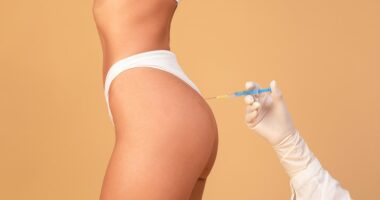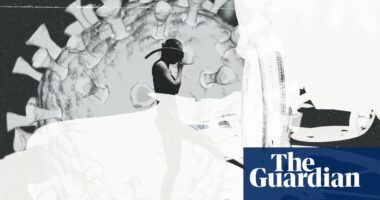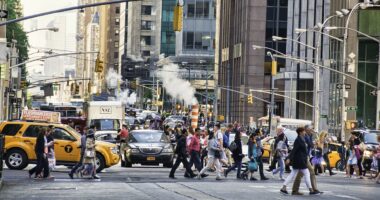Share this @internewscast.com
Getting a good night’s sleep is not easy. Whether you’re worried about something, had a late night dinner or snacks most things can play havoc with our sleeping pattern.
However, one nutritionist has shared the top foods that we should eat to help us drift off more easily in aid of World Sleep Day which is today (Friday 15 March).
The day itself raise awareness of the importance of sleep and the impact it has on our health.
Kerry Beeson, Nutritional Therapist (BSc) at meal prep service Prep Kitchen has shared her top tips.
The seven foods to avoid before bed:
Spicy foods
This includes things such as mustard and types of chilli peppers as this can cause an “increase in body temperature, heartburn and reflux at night, disturbing your sleep,” Kerry says.
Fatty foods
Remember the old wives’ tale of cheese giving you nightmares well it turns out it can cause sleep problems elsewhere.
Kerry explains: “High-fat foods such as hard cheese and fatty meats can also cause heartburn and indigestion. Fats are difficult to digest, too, so if you eat them close to bedtime, your body will be working hard to digest them instead of allowing you to relax and sleep.”
Sugary foods and refined carbohydrates
We know sugar isn’t great for us overall so it is no wonder that it messes with our quality of sleep.
Kerry says: “High sugar intake has been associated with poor sleep quality and duration. Sugar and refined carbohydrates are metabolised very quickly and release a lot of sugar into the bloodstream at once. This can give us a ‘sugar rush’ – exactly the opposite of what you need when you want to go to sleep.
“It typically takes around 1.5 to 2 hours to metabolise carbohydrates and for insulin and blood glucose levels to return to normal after eating, so avoid eating sugary foods for at least 2 hours before going to bed.”
Alcohol
That glass of wine at dinner might be the difference to getting a good night’s sleep.
Kerry adds: “Alcohol is a depressant and might initially make you feel sleepy, but can act as a stimulant and has been associated with generalised sleep disturbance and poor sleep quality. The sugar in many alcoholic drinks and mixers can also cause blood sugar spikes.”
Caffeine
There’s nothing better than grabbing a cup of coffee to help wake us in the morning. However, a coffee before is “likely to keep us awake.”
But it seems it’s not just coffee with caffeine.
Kerry elaborates: “Tea – even green or white tea – contains caffeine, and it’s best to check the ingredients of your favourite herbal tea blends to make sure they don’t contain these ingredients. The same goes for many fizzy soda drinks and chocolate.
“A hot chocolate has always been a traditional bedtime drink – the magnesium in chocolate and the tryptophan in milk may have a sedative effect, but the high sugar and caffeine content might have the opposite effect for some people, so you’re probably better off drinking a calming chamomile tea.”
Junk food
While it’s not hard to avoid these items when eating out or buying them at the supermarket it seems like it can play havoc with our sleep.
Kerry says: “As well as their high salt, sugar, or fat content, fast food often contains lots of artificial colours and other additives which have been associated with sleep disturbances.”
Salty foods
Finally, an increase in sodium can lead to “poor sleep quality.”
Kerry shares: “It can cause water retention which encourages nocturnal urination. If you’re often woken by your bladder in the night, consider whether you’re eating too much salt – aim for less than 5-6 grams daily.
“Sodium (in salt) also depletes our magnesium stores – magnesium helps your brain and muscles relax, plus it helps to keep levels of sleep hormones like melatonin balanced.”










